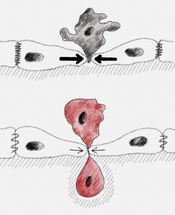Tailoring diabetes treatment to older patients yields dramatic results
More than a quarter of over 70s with type 2 diabetes could benefit simply from improving communication and education in the clinic
At the moment, patients over the age of 70 are treated using a blanket method of aggressively reducing blood glucose levels, but that does little to take their complex needs into account.
Dr David Strain, from the University of Exeter Medical School, who led the study, said: "People over the age of 70 are more likely to have multiple complications, such as heart disease, as well as type 2 diabetes. Yet perversely, these patients have so far been excluded from clinical trials, precisely because of these complications. It means they are generally treated with a 'one-size-fits-all' approach. We found that simply by individualising goals and setting realistic targets, then spending time talking to patients rather than aggressively chasing targets resulted in nearly a quarter of patients achieving better glycaemic control, without the need for medication."
Type 2 diabetes is one of the most common chronic disorders in older adults. The number of people over the age of 65 has grown worldwide, and could now be as high as one in five. Older patients are more susceptible to complications caused by hyperglycaemia, when blood sugar levels are not properly balanced. These complications can increase the risk of falls and dizziness.
The situation has led to calls for treatment to be individualised, but so far evidence to support the case has been lacking. In the study, 139 patients from across Europe were given 50mg of the drug twice a day, while the same number of comparable patients were given a placebo, plus individualised care. All patients were over the age of 70, and were included in the trial because their GP thought they needed more medication. The findings were stark: those patients who were given the drug were three times more likely to reach their target than those who were not involved in the study, and received standard treatment. But researchers were particularly excited by the result from the placebo group, in which 27 percent met their targets without any medication.
Dr Strain said: "This was a small trial, but the results were quite dramatic, and it is the first strong evidence that individualised care can make a huge difference to the lives of older patients with type 2 diabetes. We now need to build on this evidence with further research."
Most read news
Other news from the department science

Get the life science industry in your inbox
By submitting this form you agree that LUMITOS AG will send you the newsletter(s) selected above by email. Your data will not be passed on to third parties. Your data will be stored and processed in accordance with our data protection regulations. LUMITOS may contact you by email for the purpose of advertising or market and opinion surveys. You can revoke your consent at any time without giving reasons to LUMITOS AG, Ernst-Augustin-Str. 2, 12489 Berlin, Germany or by e-mail at revoke@lumitos.com with effect for the future. In addition, each email contains a link to unsubscribe from the corresponding newsletter.




















































